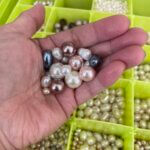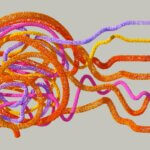Names have been changed to protect the privacy of individuals mentioned.
This year, my eldest niece turned 18. A milestone. She can now vote, buy a beer legally, and roll her eyes with full adult authority. For me, though, her birthday meant something else: I’ve also been living in the Netherlands for 18 years. Long enough to gain citizenship, develop a sixth sense for spotting free samples at Albert Heijn, and, perhaps most shockingly, get used to calling my boss by their first name.

From “Doctor Smit” to “Just call me Sarah”
I’ll never forget my first Dutch workplace. My boss at the time wasn’t just any boss. She was a board member of the association and a big-name scientist, the kind of academic whose CV could double as a coffee table book. Out of respect (and instinct from my Filipino upbringing), I addressed her as “Dr. Smit.”
She smiled, shook her head gently and said, “Oh, just call me Sarah.”
Sarah.
In the Philippines, you don’t just toss away titles like that. My mother, for example, once introduced my husband to the family like this: “This is my daughter’s cousin, Architect Jon. This is Engineer Luis. And over here, Doctor Tex.” My poor husband looked around the room expecting a curtain to drop and someone to announce: “Ladies and gentlemen, welcome to tonight’s performance of Professional Titles on Parade.”
So imagine my culture shock when I landed in the Netherlands, and hierarchy simply… didn’t exist.
Flat as a pancake (literally and hierarchically)
Dutch workplaces are as flat as the landscape. No grand titles. No bowing and scraping. Just an egalitarian stretch where CEOs line up for the same office coffee as interns, and everyone’s opinion is fair game.
It’s liberating and disorienting all at once. Meetings are democratic to a fault, every voice matters, which means polderen (consensus-building) can stretch a “quick catch-up” into something resembling medieval peace negotiations. Still, the message is clear: respect here isn’t about titles, it’s about ideas.
Language rewires you
What surprised me the most was that being immersed in this culture didn’t just change how I addressed people. It changed how I spoke, even how I thought. I was already frank in Filipino (just ask my family at Sunday lunch), but Dutch gave me permission to level up. In Dutch, I’ve become even more direct. My emails are shorter, my feedback sharper, and my tolerance for long-winded speeches… well, practically non-existent.
As Viorica Marian (2023) writes in The Power of Language, the languages we use don’t simply describe reality. They actively shape how we navigate it. After 18 years of toggling between Filipino warmth, English structure, and Dutch bluntness, I can confirm: language doesn’t just change your sentences, it changes you.
If you’re curious to explore this further, I recommend this TED Talk by cognitive scientist Lera Boroditsky: How language shapes the way we think. It’s a brilliant dive into how the words we use frame our perception of time, space, and even reality itself.
Eighteen years later
I’ve learned to embrace it. Calling a boss by their first name still feels slightly mischievous. Like I’m breaking some family rule. But I do it. And I’ve come to appreciate what it creates: workplaces where people speak up, challenge ideas, and collaborate without needing a title to be taken seriously.
That said, I still get a private chuckle when a twenty-two-year-old intern breezes past and says, “Hey, Peter” to someone whose title elsewhere would be “Executive Vice President of Global Strategy and Probably Your Future.”
In other words
Culture shock doesn’t vanish, it evolves. What once horrified me now makes me laugh. Because in the Netherlands, respect isn’t about formality. It’s about showing up, speaking your mind, and, sometimes, calling a world-renowned scientist simply “Sarah.”#
References
- Boroditsky, L. (2017, November). How language shapes the way we think [Video]. TED.
- Marian, V. (2023). The power of language: Multilingualism, Self and Society. Random House.



